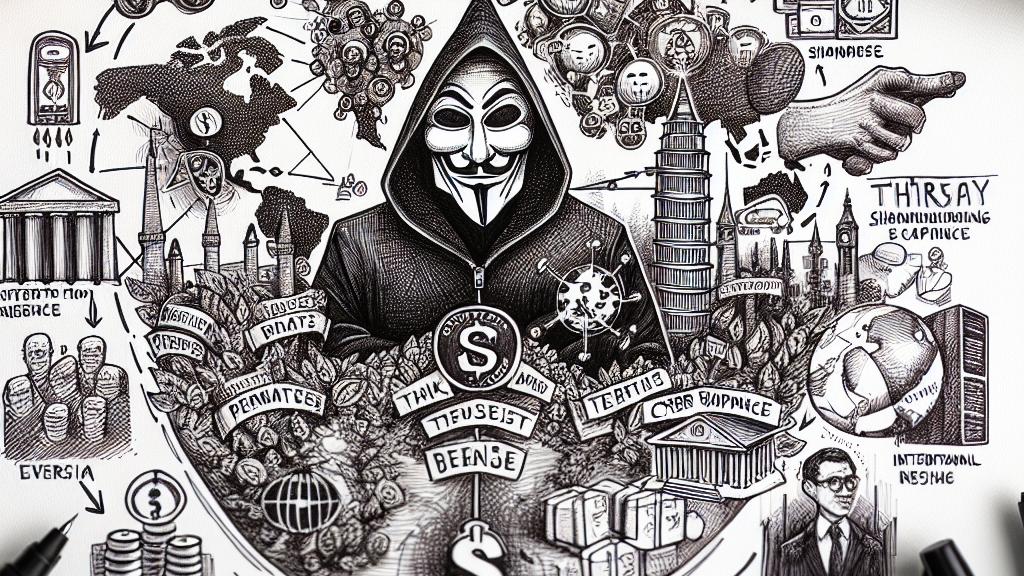Evil Corp's Cyber Attacks on NATO Nations and Subsequent Sanctions
Overview
- Evil Corp, a notorious ransomware group with connections to the Russian government, has executed a series of targeted cyber attacks against NATO countries.
- In an unprecedented unified response, the UK, US, and Australia have launched significant sanctions against key members of Evil Corp.
- This situation not only highlights the dangers of state-sponsored cybercrime but also raises critical questions about global security collaboration.

Understanding the Threat
On October 1, 2024, the startling announcement from the UK's National Crime Agency (NCA) exposed the bold and alarming actions of Evil Corp, a ransomware gang operating with apparent support from the Russian government. These unprecedented cyber attacks have not only targeted financial institutions but also sought sensitive data, leading to chaos across NATO nations. For instance, Evil Corp has reportedly managed to steal millions from banks in more than 40 countries by deploying sophisticated ransomware, thus revealing the group's sheer audacity and technical prowess. Such threats are no longer confined to isolated incidents; they represent a significant challenge to national security and international stability. The proliferation of such tactics emphasizes the urgent need for countries to join forces, share intelligence, and invest in advanced security measures to effectively counter this rising tide of cyber warfare.
Sanctions Imposed
In response to these alarming revelations, the coordinated sanctions laid down by the UK, US, and Australia against 16 identified members of Evil Corp—including the group's alleged leader, Maxim Yakubets—mark a historic moment in the fight against cybercrime. These sanctions are not simply punitive measures; they represent a committed effort to dismantle the financial networks underpinning Evil Corp’s operations. By targeting high-profile individuals and employing a range of economic penalties, these governments aim to cut off the resources that fuel these cybercriminal activities. More than a show of strength, these actions send a resounding message: orchestrated cyber attacks will be met with serious repercussions. It’s vital for the global community to see these sanctions as a model for cooperation, demonstrating that united, governments can significantly disrupt criminal enterprises that threaten collective security.
The Bigger Picture
The unfolding saga of Evil Corp serves as a stark reminder of a growing and troubling trend: the strong ties between sophisticated cybercriminal organizations and state-sponsored actors, such as Russia's FSB. This intricate web complicates our understanding of modern warfare and cyber threats, as it blurs the lines between organized crime and state interests. Recognizing the gravity of these threats, countries are beginning to rethink their security strategies. For example, international collaborations among law enforcement agencies are increasing, focusing on not only apprehending individuals but also developing protocols for intelligence sharing and joint operations. The surge in cyber attacks necessitates a proactive response, prompting NATO and its allies to bolster defenses by adopting cutting-edge technologies and fostering partnerships. Ultimately, the challenge lies not just in defending against future attacks, but in cultivating a resilient and united front that can adapt to the increasingly complex battlefield of cyberspace.

Loading...